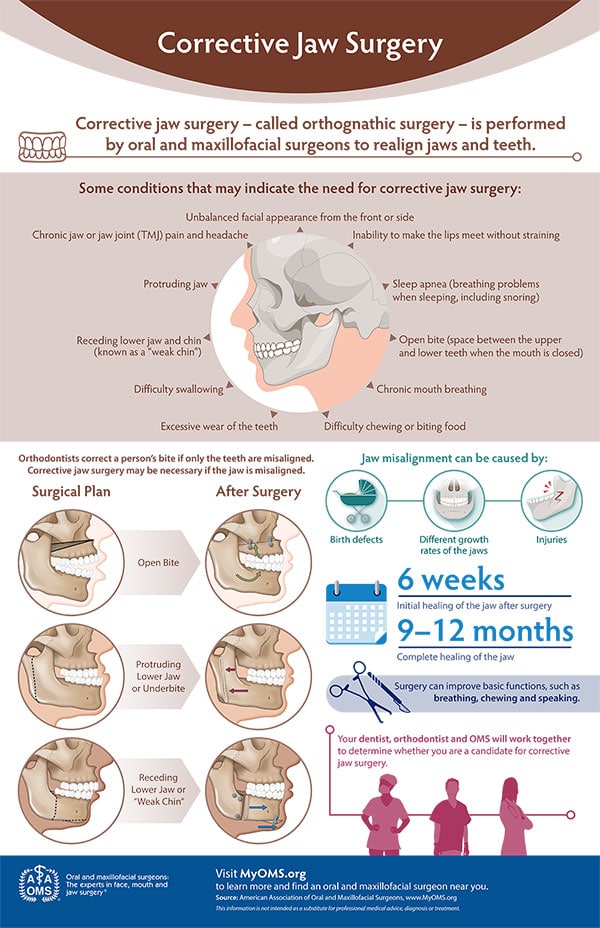Restore Your Jaw’s Functionality
Corrective jaw surgery, sometimes called orthognathic surgery, can help if your jaw isn’t aligned correctly—a misalignment that can cause problems like difficulty chewing, speaking, or even opening your mouth wide. It can also lead to jaw pain and headaches. Because Dr. Slaughter and his team understand that undergoing surgery can be a source of anxiety and that patients worry about pain, recovery time, and the overall cost, they go the extra mile to make the procedure as hassle-free as possible. Get your quality of life back by giving us a call today to schedule your appointment with our team that cares!
What is Corrective Jaw Surgery?
There are many non-surgical treatment options that can address the alignment of your teeth and, in some cases, your lower jaw’s position in relation to your upper jaw. However, conditions that impact the size or shape of your jaw may require surgery to address properly. Because your jaw has such a significant impact on your bite alignment and function, jaw surgery may be combined with orthodontic treatment to ensure proper alignment of your jaw and all other oral structures following your surgery.
The Benefits
Targeted Treatment for Your Discomfort
TMJ Disorder
Sleep Apnea
Facial Trauma
Approaching Your Surgery with Care
Dr. Slaughter is a board-certified oral and maxillofacial surgeon who specializes in the complex structure of the face, jaw, and mouth. This training, combined with years of experience, ensures you receive the highest quality of care for your corrective jaw surgery. He also utilizes advanced digital imaging, including 3D computed tomography (CT) scans, to create a detailed map of your unique jaw structure, which allows for precise planning for your surgery—a level of precision that minimizes risks and maximizes the chances of achieving your desired results.
Frequently Asked Questions
How do I know if I need surgery?
Depending on the reason, your condition may or may not be obvious. For example, some discrepancies can visibly affect your facial appearance, while others may not be noticeable. The only way to know for sure if surgery is necessary and if it can help improve your oral health is with a comprehensive examination with Dr. Slaughter.
Is corrective jaw surgery painful?
We perform this surgery under general anesthesia. This means you’ll be completely asleep throughout the procedure and won’t feel any pain! Our team of experienced anesthesiologists will closely monitor your vital signs to ensure your safety and comfort.
How long will I need to recover?
While recovery time varies depending on the complexity of the surgery, most patients can expect to return to work or school within 1-2 weeks. You’ll need to follow a soft food diet for several weeks and avoid strenuous activity, but we’ll provide you with detailed post-operative instructions to support you throughout your recovery.
How much does jaw surgery cost?
We understand that cost is an important consideration. We offer a variety of financing options to help make corrective jaw surgery more affordable, and our friendly team is more than happy to help you find a plan that fits your budget.
No More Jaw Pain or Dysfunction
If your jaw structure’s abnormality impacts its function, or you’ve recently suffered trauma to your jaw, then you may benefit from custom corrective jaw surgery. To schedule your consultation, call the Texas Institute of Oral, Facial & Implant Surgery in Midlothian, TX, today—you’re in expert hands with Dr. Slaughter and his team!




